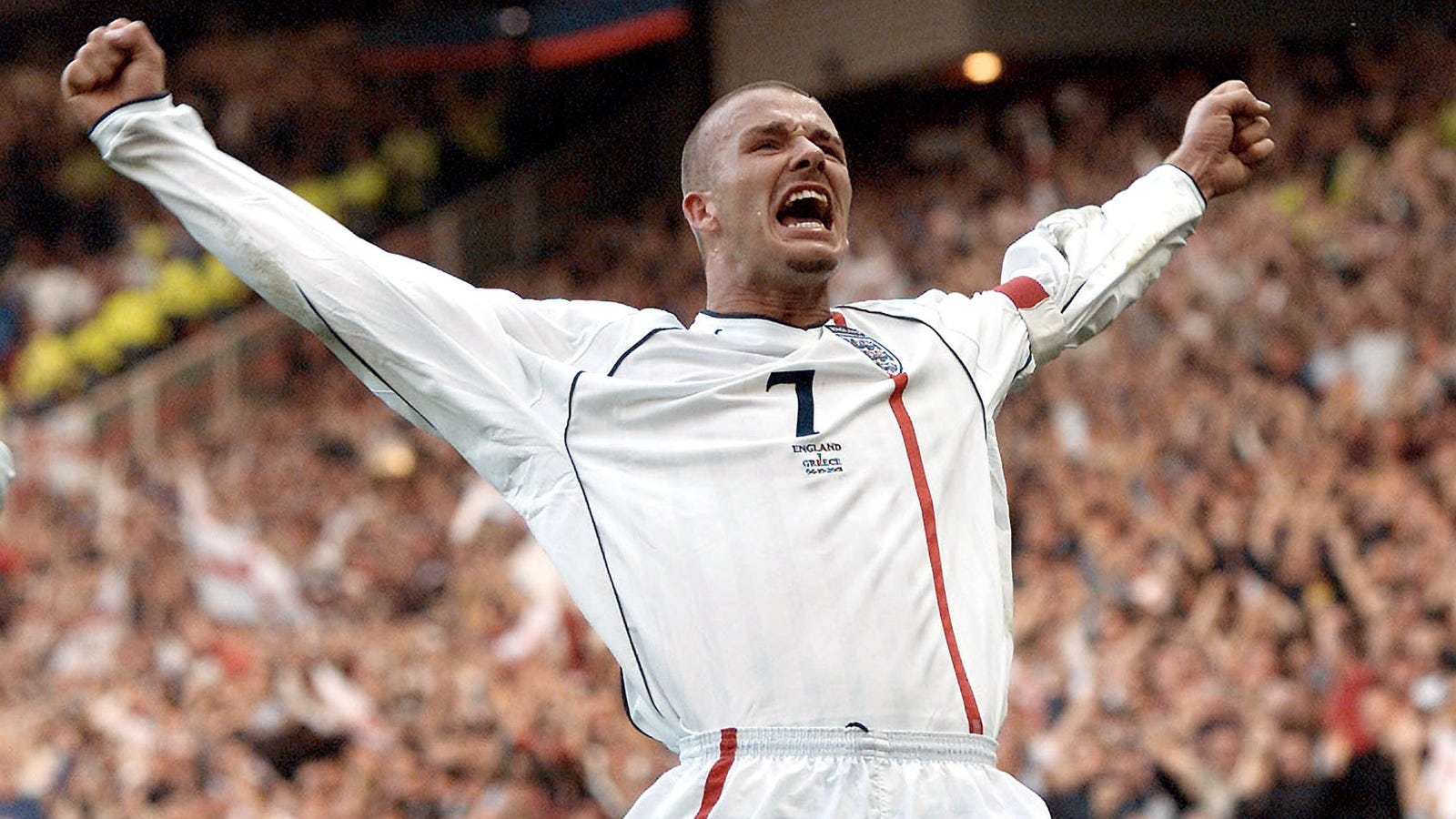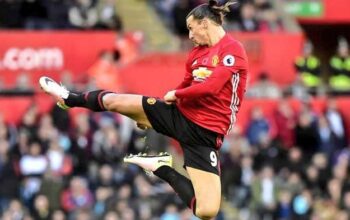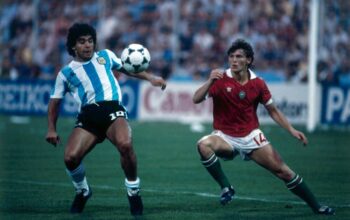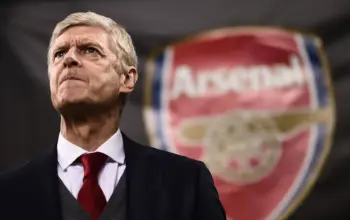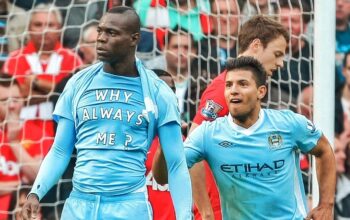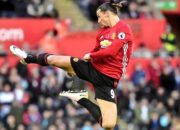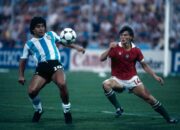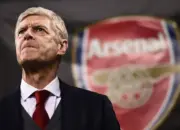Uzone.id – If football has stories of redemption, David Beckham’s would surely be among the most memorable. The English football superstar didn’t make a disastrous own goal or miss a crucial penalty.
Yet, he found himself blamed for England’s downfall in the 1998 World Cup after being sent off with a red card. That moment turned Beckham into a scapegoat, with many accusing him of being the reason behind England’s exit from the tournament.
At that time, Beckham, who was still relatively green, and had even been the second option after Darren Anderton to fill the right wing position, was accused by the referee of committing an unsporting action towards Diego Simeone.
In a dead ball situation, Beckham was seen “touching” Simeone’s leg. He was sent off by the referee and quickly the British public and mass media made him the scapegoat.
Three years after this incident, the England national team only needed a minimum draw against Greece to qualify for the 2002 World Cup.
Commemorated on October 6, 2001, Old Trafford is a silent witness to how difficult it was for England to overcome Greece’s resistance.
Angelos Charisteas made the English public nervous after he scored his goal in the 36th minute. Sven Goran Erikson, who at that time was still serving as England’s manager, finally brought in Teddy Sheringham to enrich his attacking options. The nicknamed attacker super-sub In the end, Erikson paid off his trust with an equalizing goal just a minute after entering the field.
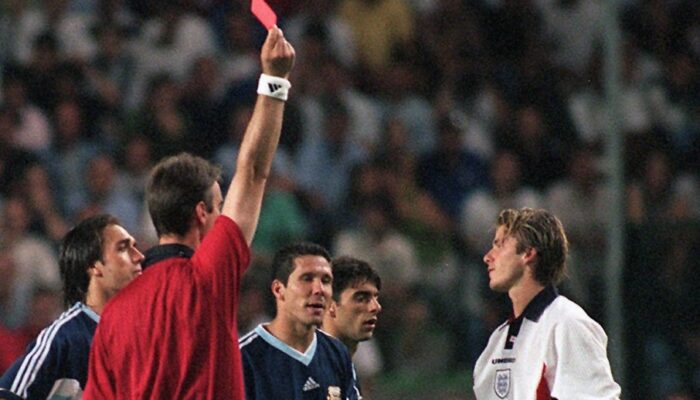
However, Greece prefers to show drama. Again, they sent a goal back two minutes later after Sheringham’s goal. Demis Nikolaidis was the main antagonist at Old Trafford at that time. 2-1 for the visitors.
The British public was gripped by acute anxiety. If that score persists until the match ends, disaster will strike English football. Time continued to pass and the seconds before the match ended were getting closer. The score was still 2-1 for Greece until entering extra time.
David Beckham has made five attempts to score goals via free kicks. But none of them produced results. Five is not a small number for free-kick attempts.
In the final seconds, England once again got a free kick in front of the Greek penalty box. Again Beckham took it. The failure of five free kicks throughout the first and second half did not make him nervous or mentally collapsed. He kept going.
And… boom! The captain sent a curling shot that the Greek goalkeeper couldn’t reach. The score 2-2 was the final result of the match and the British public present at Old Trafford cheered with joy as if celebrating the world title.
“I think all the doubts for me, both as a football player and as a human being, instantly disappeared with that moment (the goal against Greece). The heartache of being eliminated during the World Cup (1998) has been healed,” said Beckham after the match as quoted in the Daily Mail.
On another occasion, Beckham also explained his secret to becoming a specialist in taking free kicks.
“I had to practice taking kicks thousands of times, even more than that. When I was little, I used to try kicks in the city park and try to hit the targets in the park,” recalled Victoria’s husband.
“When my father comes home from work, my father and I will look for a goal in the park and my father will stand like a posse. After that I will be forced to turn the ball so it can enter the goal,” continued Beckham.
It turns out that Beckham and his father’s behavior was repeated regularly, often until it started to get dark. The lights from the windows of the houses around the park provide just enough light to help little Beckham practice free kicks.
In fact, at one point, little Beckham had just returned from the playground, he was still taking free kicks at home. Indeed, Beckham was strictly forbidden by his mother to play with the ball if he was in the house. However, Beckham did not run out of ideas, he used his younger sister’s teddy bear to be the target of the kick.
“When my mother found out I was using a doll as a substitute for the ball, she just smiled without being able to complain whatever. “This also shows that I love football,” said Beckham.
His skill has indeed attracted the attention of many people, including scientists who are researching how Beckham’s curved kick occurs.
Dr Matt Carre, a scientist from Sheffield, said that Beckham’s kick against Greece was almost certain that the ball’s path had changed from rotation. Turbulent becomes laminar a few meters before heading towards the goal.
“Our calculations predict that the ball will hit the goalpost or even go over the top. In this case, Beckham has applied a lot of extraordinary physics,” continued Dr Carre.
Even more amazing, four students from the University of Leicester, namely Jasmine Sandhu, Amy Edgington, Matthew Grant, and Naomi Rowe-Gurney discovered the relationship between the ball bending in the air, the speed of the ball, and the speed of rotation. “spin” which is applied when the ball is kicked.
When the ball spins in the air, it experiences a force called the Magnus force which causes the ball to bend sideways from the direction it was originally kicked. This group (Jasmine et al) found that the distance the ball curves (D) as a result of this force is related to the ball radius (R), air density (?), ball rotation speed (?), speed through the air (v), ball mass ( m) and the distance traveled by the ball in the direction it was kicked (x). They found that the various parts could be calculated using this formula:
It’s a bit complicated. However, who knows, if there are readers with a science/physics degree, you might try the truth of the formula from this University of Leicester student.
Happy counting!

